Fueling Creativity in Education
Episodes
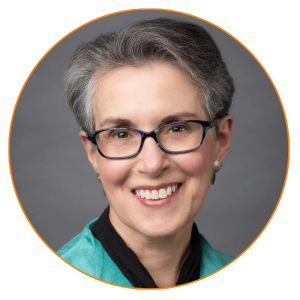
Tuesday May 20, 2025
Tuesday May 20, 2025
Sign up for our weekly newsletter here!
Listen to Part Two of the Double Expresso here!
In this episode of the Fueling Creativity in Education Podcast, hosts Dr. Matthew Worwood and Dr. Cyndi Burnett engage in an enlightening conversation with Dr. Teresa Amabile, a world-renowned expert in creativity research. Teresa shares fascinating insights from her impressive 50-year career, discussing her journey and the many chapters of her groundbreaking work. The conversation begins into her early interests in childhood creativity, sparked during her time in kindergarten, and how these experiences led her to study motivation and its effects on creativity. Teresa emphasizes the importance of intrinsic motivation and reflects on how extrinsic factors can sometimes bolster creativity, sharing practical tips for teachers and administrators.
The episode also highlights Teresa's reflections on creativity within educational environments, stressing that creativity is not solely an individual trait but is significantly influenced by context. The discussion touches on her book "Creativity in Context" and explores how school environments can either nurture or stifle creative potential. Teresa advocates for a flexible, personalized approach to education, where students are encouraged to explore and play without the constraints of rigid, standardized assessments. Throughout the episode, Matthew and Cyndi explore these themes with Teresa, drawing valuable connections between research and practical application in educational settings.
Creativity in Context
About Dr. Teresa Amabile:
Dr. Teresa Amabile is a world-renowned expert in creativity research, with 50 years of groundbreaking work in the field. She is the Edsel Bryant Ford Professor, Emerita, at Harvard Business School and originally trained as a chemist before earning her Ph.D. in psychology from Stanford University. Her research has explored the intersection of creativity, motivation, and the work environment, shaping how we understand and foster innovation. Dr. Amabile is the author of several influential books, including Growing Up Creative, Creativity in Context, The Progress Principle, and most recently, Retiring: Creating a Life that Works for You, as well as over 100 research articles and scholarly chapters. Her work continues to inspire educators, leaders, and organizations to cultivate environments that nurture creativity and innovation.
Eager to bring more creativity into your school district?
Check out our sponsor Curiosity2Create.org and join their Creativity Network for Educators at Curiosity2Connect!
Check out our Podcast Website to dive deeper into Creativity in Education!
For more information on Creativity in Education, check out:
Matt's Website: Worwood Classroom
Cyndi's Website: Creativity and Education
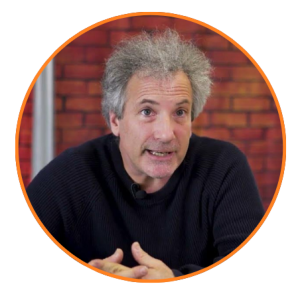
Tuesday Mar 05, 2024
Measuring Creative Potential with Dr. Todd Lubart
Tuesday Mar 05, 2024
Tuesday Mar 05, 2024
How do you measure the creative potential of your students?
In part one of this double expresso episode of the Fueling Creativity in Education podcast, Dr. Todd Lubart, a distinguished creativity researcher and Professor of Psychology at Université de Paris, joins hosts Dr. Matthew Worwood and Dr. Cyndi Burnett in an insightful conversation about measuring creative potential in education.
Dr. Lubart shares his expertise in defining creative potential as the ability to produce original and meaningful work and delves into the development of the EPoC (Evaluation of Potential Creativity) battery, a comprehensive tool designed to measure creative potential in children and adolescents across different domains. The discussion touches upon the environmental factors influencing creative potential, the practical implementation of creativity assessments in classrooms, and the responsibility of schools in nurturing and amplifying students' creative potential.
Learn more about the EPoC here.
About Dr. Todd Lubart:
Todd Lubart is a professor of psychology at University Paris Cité. Former director of an applied psychology research laboratory, coordinator of several grants and contracts, he has more than 200 publications in articles, books and psychological tests. His lines of research concern creative potential, creativity assessments, creativity development, environmental support for creativity, the impact of technology on creativity. Todd Lubart serves on the editorial board of several journals concerning creativity and innovation, received the Berlyne award from the American Psychological Association, the NAGC Torrance Award, and was a member of the Institut Universitaire de France. Todd Lubart is president of the non-profit ISSCI (the International Society for the Study of Creativity and Innovation, issci.online).
Eager to bring more creativity into your school district?Check out our sponsor Curiosity2Create.org and CreativeThinkingNetwork.comWhat to learn more about Design Thinking in Education? Do you want to build a sustained culture of innovation and creativity at your school? Visit WorwoodClassroom.com to understand how Design Thinking can promote teacher creativity and support professional growth in the classroom. Subscribe to our monthly newsletter!
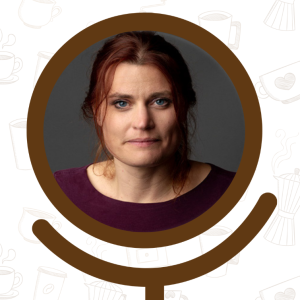
Tuesday Apr 25, 2023
THROWBACK on creativity and serendipity with Dr. Wendy Ross
Tuesday Apr 25, 2023
Tuesday Apr 25, 2023
How does serendipity affect creativity? In this throwback episode of the Fueling Creativity in Education podcast, Dr. Cyndi Burnett and Dr. Matthew Worwood revisit their conversation with Dr. Wendy Ross, a cognitive scientist, senior lecturer in psychology, and Chair of the Serendipity Society. Wendy’s research looks at the role of serendipity in creativity, using everything from experimental methods to ethnographic work.
Listen in as Wendy shares her research findings on the relationship between serendipity and creativity, why serendipity is a disruptive force in learning, and the importance of students building a tolerance to failure and adversity. She also gives powerful advice for educators on implementing this knowledge around serendipity in the classroom.
They also discuss the current debates on whether the pandemic has increased or decreased feelings of serendipity, as well as what teachers can do foster a norm of working through discomfort and mistakes.
“That’s what makes serendipity a powerful tool, is that it relies on the prepared mind and it relies on this idea of scarcity of wisdom, of using the accidents that come to you and taking advantage of them.” - Dr. Wendy Ross
Wendy’s Tips for Teachers:
Encourage your students to get comfortable with discomfort and failure.
Generate interesting environments with many different moments of inspiration and pathways of creativity.
Most serendipity comes from interactions with people, not with things.
Resources Mentioned:
Listen to the episode with Vlad Glaveanu.
Listen to the episode with Ron Beghetto.
Eager to bring more creativity into your home or classroom?
Access various creativity resources and tools & listen to more episodes of The Fueling Creativity in Education Podcast by visiting www.CreativityandEducation.com.
What to learn more about Design Thinking in Education?
Do you want to build a sustained culture of innovation and creativity at your school? Visit WorwoodClassroom.com to learn how Design Thinking can promote teacher creativity and support professional growth in the classroom.
Subscribe to our monthly newsletter!
About Dr. Wendy Ross:
Wendy’s main topic of research is the role of material serendipity in higher cognitive processes such as insight problem solving and creativity. She draws on a range of methods from eye-tracking and experimental psychology to focused cognitive ethnography. She is currently co-editing two collections on serendipity: The Art of Serendipity (Palgrave) and Serendipity Science (Springer). She is Co-Chair of the Serendipity Society and Vice President of the Possibility Studies Network. In 2021, she was awarded the Frank Barron prize by Division 10 of the APA.
Connect with Wendy:
Connect with her on LinkedIn: www.linkedin.com/in/wendy-ross-670487191
You can also find The Fueling Creativity Podcast on Apple Podcasts, Spotify, Audible, and PodBean! Make sure to rate, review, and share the podcast if you enjoy it!
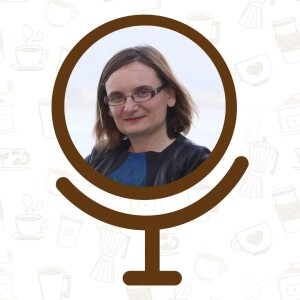
Tuesday Mar 14, 2023
Emotional Intelligence and Creativity with Dr. Zorana Ivcevic Pringle
Tuesday Mar 14, 2023
Tuesday Mar 14, 2023
What role do emotions play in creativity? Are we more creative when we’re happy? In this episode of the Fueling Creativity in Education podcast, Dr. Cyndi Burnett and Dr. Matthew Worwood continue their discussion with Zorana Ivcevic Pringle, Ph.D., a Senior Research Scientist at the Yale Center for Emotional Intelligence. In part 1 of this double expresso, Zorana talked about how people engage in the creative process and how that applies to the classroom environment.
In part 2, you’ll learn more about the emotional side of creativity along with strategies for supporting students as they navigate emotions and creativity in the k-12 classroom. Zorana highlights the Theory of Emotional Intelligence, detailing how we can harness the power of our emotions to express creativity and achieve our creative goals. This insight is very helpful for teachers in helping students be more creative and more in touch with their feelings, moods, and emotions.
Zorana also shares insights from her new book, The Cambridge Handbook of Creativity and Emotion, and how they apply to creativity in education.
“What we have learned from these studies is pretty unanimous, actually - that positive, pleasant, highly energized moods, such as being happy, is helpful for creative thinking. People come up with more ideas and more original ideas in these states.” – Zorana Ivcevic Pringle
Zorana’s Tips for Teachers and Parents:
Creativity is full of emotions. From anxiety in front of an empty screen to frustrations when you’re facing obstacles to the joy and pride of success. All are part of the creative process. Remind yourself and your students that challenging feelings are not a sign of lack of creativity skills, but they are a normal part of the creative process and can be expected.
When teaching for creativity, it’s important to model and support the process of transforming ideas into an end product. That process may be long and will require flexibility, adjustment, and facing frustrations.
Teach students how to regulate their work on creative projects. They need to be aware that they will have to persist through difficulties, but they can use the emotions they experience in service to their project.
“The advice shouldn’t be that we have to be happy or joyful in order to be creative, but it oftentimes happens like that. There are also other people who got inspired by grief and by pain and by anxiety, so that is possible too and we shouldn’t discount it, especially when we are giving advice of how to be inspired.” – Zorana Ivcevic Pringle
Check out Zorana's Newsletter!
Recommended Resources:
Listen to Part 1 with Zorana Ivcevic Pringle
The Cambridge Handbook of Creativity and Emotion by Jessica D. Hoffmann, James C. Kaufman, and Zorana Ivcevic
Listen to the episode with Dr. James Kaufman
GoNoodle
Subscribe to our monthly newsletter!
Eager to bring more creativity into your home or classroom?
Access various creativity resources and tools & listen to more episodes of The Fueling Creativity in Education Podcast by visiting www.CreativityandEducation.com.
What to learn more about Design Thinking in Education?
Do you want to build a sustained culture of innovation and creativity at your school? Visit WorwoodClassroom.com to learn how Design Thinking can promote teacher creativity and support professional growth in the classroom.
Have a question? Email Dr. Burnett and Dr. Worwood at questions@fuelingcreativitypodcast.com!
You can also find The Fueling Creativity in Education Podcast on Apple Podcasts, Spotify, Audible, and PodBean! Please rate, review, and share the podcast if you enjoy it!
About Zorana Ivcevic Pringle:
Zorana Ivcevic Pringle, Ph.D., is a Senior Research Scientist at the Yale Center for Emotional Intelligence. Dr. Ivcevic studies the role of emotions in creativity and well-being, as well as how to use the arts (and art-related institutions) to promote emotion and creativity skills. She has served as Associate Editor of Psychology of Aesthetics, Creativity, and the Arts, International Journal of Creativity and Problem Solving, and Creativity Research Journal. Her work has been featured in the Harvard Business Review, ArtNet, US News, Education Week, Science Daily, El Pais, and others, and is a regular contributor to Psychology Today and Creativity Post. Dr. Ivcevic received the Award for Excellence in Research from the Mensa Education and Research Foundation, the Berlyne Award for Outstanding Early Career Achievement from the Society for the Psychology of Aesthetics, Creativity and the Arts, and has been elected Fellow of the American Psychological Association.
Visit Zorana’s website
Follow her on Instagram
Follow her on Twitter
Connect with her on Facebook
Connect with her on LinkedIn
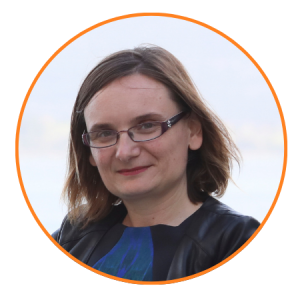
Tuesday Mar 14, 2023
How emotions influence the creative process with Dr. Zorana Ivcevic Pringle
Tuesday Mar 14, 2023
Tuesday Mar 14, 2023
Grab your coffee! We have an incredible double expresso about creativity and emotions. In this episode of the Fueling Creativity in Education podcast, Dr. Cyndi Burnett and Dr. Matthew Worwood welcome Dr. Zorana Ivcevic Pringle, a Senior Research Scientist at the Yale Center for Emotional Intelligence. Dr. Ivcevic studies the role of emotions in creativity and well-being, as well as how to use the arts (and art-related institutions) to promote emotion and creativity skills.
In Part 1 of this discussion, you’ll learn how people engage in the creative process and the role emotions play in that process. Stay tuned for Part 2 to hear Zorana’s Tips for Teachers and Parents, as well as strategies for supporting students as they navigate the emotional side of creativity in the k-12 classroom.
Listen in as Zorana breaks down the three major factors attitudes people feel towards creativity: anticipating negative social consequences, internal anxiety, and the feeling that creativity is important to them. These attitudes about creativity can tell us about their creative behavior at school and how they approach schoolwork and creative projects.
“People weigh each of these things in their minds as they are deciding what to do with the ideas they might be having.” – Zorana Ivcevic Pringle
Zorana shares tips and advice for teachers who have students that are anxious towards creativity. Then, she talks about what Social Cognitive Theory can tell us about how self-efficacy supports creativity, especially in kids.
Plus, Zorana sheds light on how education systems are hindering teachers’ ability to facilitate creativity in the classroom and the need for greater policy change.
“This is what the leaders of the world economy are telling us, and of major organizations this is what we need, but there’s a disconnect from the world of educational priorities.”
– Zorana Ivcevic Pringle
Check out Zorana's Newsletter!
Subscribe to our monthly newsletter!
Eager to bring more creativity into your home or classroom?
Access various creativity resources and tools & listen to more episodes of The Fueling Creativity in Education Podcast by visiting www.CreativityandEducation.com.
What to learn more about Design Thinking in Education?
Do you want to build a sustained culture of innovation and creativity at your school? Visit WorwoodClassroom.com to learn how Design Thinking can promote teacher creativity and support professional growth in the classroom.
Have a question? Email Dr. Burnett and Dr. Worwood at questions@fuelingcreativitypodcast.com!
You can also find The Fueling Creativity in Education Podcast on Apple Podcasts, Spotify, Audible, and PodBean! Please rate, review, and share the podcast if you enjoy it!
About Zorana Ivcevic Pringle:
Zorana Ivcevic Pringle, Ph.D., is a Senior Research Scientist at the Yale Center for Emotional Intelligence. Dr. Ivcevic studies the role of emotions in creativity and well-being, as well as how to use the arts (and art-related institutions) to promote emotion and creativity skills. She has served as Associate Editor of Psychology of Aesthetics, Creativity, and the Arts, International Journal of Creativity and Problem Solving, and Creativity Research Journal. Her work has been featured in the Harvard Business Review, ArtNet, US News, Education Week, Science Daily, El Pais, and others, and is a regular contributor to Psychology Today and Creativity Post. Dr. Ivcevic received the Award for Excellence in Research from the Mensa Education and Research Foundation, the Berlyne Award for Outstanding Early Career Achievement from the Society for the Psychology of Aesthetics, Creativity and the Arts, and has been elected Fellow of the American Psychological Association.
Visit Zorana’s website
Follow her on Instagram
Follow her on Twitter
Connect with her on Facebook
Connect with her on LinkedIn
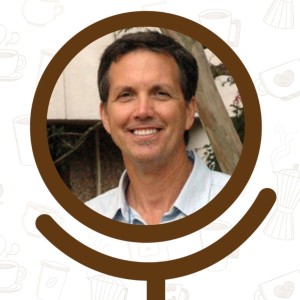
Tuesday Jun 14, 2022
Discussing the Future of Creativity Research with Mark Runco
Tuesday Jun 14, 2022
Tuesday Jun 14, 2022
In part two of this “double expresso” discussion, Dr. Cyndi Burnett and Dr. Matthew Worwood continue speaking with creativity researcher, thought leader, and cognitive psychologist, Dr. Mark Runco, about the future of creativity research and his upcoming creativity conference.
Tune in to gain insight into the current creativity in education research and where Mark thinks this research is headed in the future. He also speaks on the misuses of divergent thinking tests, particularly in neuroscientific research, as well as how educators can promote creativity and originality in the classroom, even when they’re following a curriculum.
Then, Mark sheds light on what you can expect from the Southern Oregon University Creativity Conference (coming up on July 14th-17th, 2022) and why everyone could benefit from attending.
Mark’s Tips for Teachers and Parents:
Be creative and appreciate creativity – whatever that looks like for you.
Depending on the age of your students/kids, work on building confidence, which is called “ego strength” in creativity research.
You don’t need to look for unambiguously creative behaviors in your students. Look for creative potential and look for things that enable and encourage originality, like self-expression. Self-expression is extremely important and leads directly to creativity.
“One of - if not the main problem with creativity among students has to do with social pressure and fitting in… This is really a huge problem in the middle and upper elementary grades… because a strict adherence to convention precludes creativity. It’s basically antithetical to originality.” – Dr. Mark Runco
Resources Mentioned:
Listen to the episode about inquiry-based learning with Dr. Frank LaBanca
Listen to the episode with Jonathan Plucker
Register for the Southern Oregon University Creativity Conference
Subscribe to our monthly newsletter!
Eager to bring more creativity into your home or classroom?
Access various creativity resources and tools & listen to more episodes of The Fueling Creativity in Education Podcast by visiting www.CreativityandEducation.com.
What to learn more about Design Thinking in Education?
Do you want to build a sustained culture of innovation and creativity at your school? Visit WorwoodClassroom.com to learn how Design Thinking can promote teacher creativity and support professional growth in the classroom.
Have a question? Email Dr. Burnett and Dr. Worwood at questions@fuelingcreativitypodcast.com!
You can also find The Fueling Creativity in Education Podcast on Apple Podcasts, Spotify, Audible, and PodBean! Make sure to rate, review, and share the podcast if you enjoy it!
About Dr. Mark A. Runco:
Dr. Mark A. Runco is a leading creativity scholar who is active in empirical research and has published cognitive, economic, genetic, historical, developmental, and educational books and articles on the topic. To help people fulfill their capacity for creativity, he has devised a battery of tests that measures creative potential and performance. He teaches a variety of graduate and undergraduate classes on creativity and innovation, and once each year he organizes an international creativity conference. Mark earned his Ph.D. in cognitive psychology from the Claremont Graduate School in California and has studied creativity ever since. He is currently the Director of Creativity Research and Programming at Southern Oregon University.
Connect with Mark Runco on LinkedIn
Visit his website
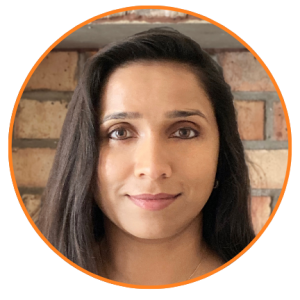
Tuesday Mar 15, 2022
Discussing Neuroscience and Creativity with Dr. Anna Abraham- Part Two
Tuesday Mar 15, 2022
Tuesday Mar 15, 2022
In this episode of the Fueling Creativity Podcast, Dr. Cyndi Burnett and Dr. Matthew Worwood speak with Dr. Anna Abraham, an E. Paul Torrance Professor in UGA’s Department of Educational Psychology and Director of the Torrance Center for Creativity and Talent Development at UGA’s Mary Frances Early College of Education.
In part two of this two-part interview, you’ll gain insight into the work of E. Paul Torrance, the father of creativity and education, along with the work that Anna is now doing within the Torrance Center for Creativity and Talent Development. She shares her vision for the department and how she intends on building upon the work of Torrance, particularly via The Torrance Festival of Ideas. As the Founding Editor of The Cambridge Elements Series in Creativity and the Imagination, Anna also sheds light on the key insights she’s learned about imagination and wonder.
“If you’ve managed to cultivate wonder in your student, you have done something magical.”
- Anna Abraham
“Being in the College of Education, our role is to be a resource, an educational resource, and part of that is getting people very instrumental together to talk about ideas that are really relevant for the community at large.” - Anna Abraham
Anna’s Tips for Teachers and Parents:
See creativity as not the domain of a few, but a skill that is basic to all of us.
Having recognized that you have this creative ability, think about what it can do for you- not as a way to make money or prove your productivity, but as a way to discover yourself and the power of your own mind.
Don’t stop being creative. Keep at it, even if it’s for a few minutes each day!
About Anna Abraham:
Anna Abraham, Ph.D. is the E. Paul Torrance Professor and the Director of the Torrance Center for Creativity and Talent Development at UGA’s Mary Frances Early College of Education. Her educational and professional training has been within the disciplines of Psychology and Neuroscience, and she has worked across a diverse range of academic institutions and departments the world over, all of which have informed her multidisciplinary focus. She investigates the psychological and neurophysiological mechanisms underlying creativity and other aspects of the human imagination. Her wide-ranging contributions to the field of creativity include theoretical, methodological and empirical advances in the context of basic and applied research. She has penned numerous publications including the sole authored book, The Neuroscience of Creativity (2018, Cambridge University Press), and the multidisciplinary edited volume, The Cambridge Handbook of the Imagination (2020). She is the Founding Editor of The Cambridge Elements Series in Creativity and the Imagination.
Visit Anna's websiteConnect with her on LinkedIn
Resources Mentioned:
Listen to part 1 linked needed
Sign up to join The Torrance Festival of Ideas
Listen to the episode with Natalie NixonListen to the episode with Jeffrey Davis
Subscribe to our monthly newsletter!
Eager to bring more creativity into your home or classroom?
Access various creativity resources and tools & listen to more episodes of The Fueling Creativity in Education Podcast by visiting www.CreativityandEducation.com.
What to learn more about Design Thinking in Education?
Do you want to build a sustained culture of innovation and creativity at your school? Visit WorwoodClassroom.com to learn how Design Thinking can promote teacher creativity and support professional growth in the classroom.
You can also find The Fueling Creativity Podcast on Apple Podcasts, Spotify, Audible, and PodBean! Make sure to rate, review, and share the podcast if you enjoy it!
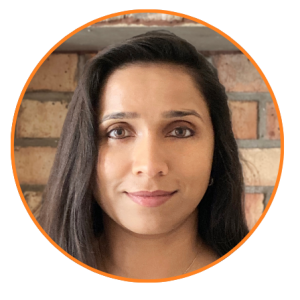
Tuesday Mar 15, 2022
Discussing Neuroscience and Creativity with Dr. Anna Abraham- Part One
Tuesday Mar 15, 2022
Tuesday Mar 15, 2022
Is there a difference between an imaginative mind and a creative mind? In this episode of the Fueling Creativity Podcast, Dr. Cyndi Burnett and Dr. Matthew Worwood speak with Dr. Anna Abraham, an E. Paul Torrance Professor and Director of the Torrance Center for Creativity and Talent Development at UGA’s Mary Frances Early College of Education. Anna investigates the psychological and neurophysiological mechanisms underlying creativity and other aspects of the human imagination.
In part one of this two-part interview, you’ll gain insight into the similarities and differences between a creative mind and an imaginative mind based on neuroscientific research. Anna breaks down her findings on the neurophysiological mechanisms underlying creativity and how teachers can translate these to a classroom environment. Anna also identifies problems and potential solutions in unimodal forms of teaching and learning as part of the standard educational curriculum.
Plus, she shares her candid thoughts, from a neuroscience perspective, on the question: Can creativity be taught?
About Anna Abraham:
Anna Abraham, Ph.D. is the E. Paul Torrance Professor and the Director of the Torrance Center for Creativity and Talent Development at UGA’s Mary Frances Early College of Education. Her educational and professional training has been within the disciplines of Psychology and Neuroscience, and she has worked across a diverse range of academic institutions and departments the world over, all of which have informed her multidisciplinary focus. She investigates the psychological and neurophysiological mechanisms underlying creativity and other aspects of the human imagination. Her wide-ranging contributions to the field of creativity include theoretical, methodological and empirical advances in the context of basic and applied research. She has penned numerous publications including the sole authored book, The Neuroscience of Creativity (2018, Cambridge University Press), and the multidisciplinary edited volume, The Cambridge Handbook of the Imagination (2020). She is the Founding Editor of The Cambridge Elements Series in Creativity and the Imagination.
Visit Anna's websiteConnect with her on LinkedIn
Resources Mentioned:
Listen to part 2 linked needed
Internet of Us by Michael P. Lynch
Subscribe to our monthly newsletter!
Eager to bring more creativity into your home or classroom?
Access various creativity resources and tools & listen to more episodes of The Fueling Creativity in Education Podcast by visiting www.CreativityandEducation.com.
What to learn more about Design Thinking in Education?
Do you want to build a sustained culture of innovation and creativity at your school? Visit WorwoodClassroom.com to learn how Design Thinking can promote teacher creativity and support professional growth in the classroom.
You can also find The Fueling Creativity Podcast on Apple Podcasts, Spotify, Audible, and PodBean! Make sure to rate, review, and share the podcast if you enjoy it!